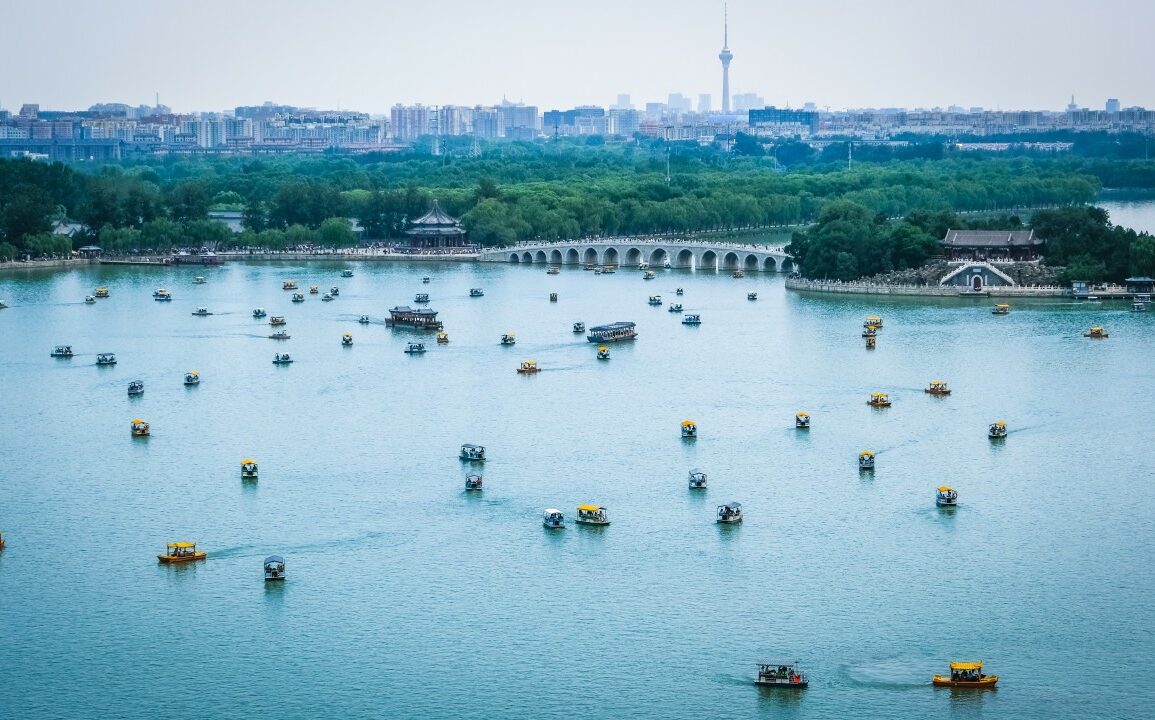French journalist Patrick Baert worked for Agence France-Presse (AFP) in China, a country where the freedom of the press does not exist. The Chinese government has tightened its censorship, between the first time the correspondent editor went there (1997-2001) and its return as Beijing bureau chief (2016-2022). But that is not the only change he noticed.
After studying political sciences and journalism, Patrick Baert taught French and journalism at Moncton University in Canada. At the end of the eighties, he started working as a journalist in Paris for Libération and the Associated Press, and in London for British Broadcasting Corporation (BBC) and Agence France-Presse (AFP).
While working at the BBC world service, a happy encounter with a colleague prepared him for his future in China: the one, who will later become his wife, taught him Chinese. After his first stay in China, he became news editor in Washington (U.S.), from 2008 to 2012 and bureau chief in Rennes (France), from 2012 to 2016 for AFP. He is now working as AFP Strasbourg bureau chief.
Between his two stays in China, Patrick Baert “didn’t have the feeling to do the same thing”. He “prevented himself to go back to China during 15 years to preserve the surprise effect when [he] will return in this nation in mutation” (AFP). Indeed, the country has changed quickly. As an example, during his first stay, a train journey from Beijing to Shanghai lasted 21 hours. During his second stay, it took only four hours and a half.
Big cities have become less exotic, as well as foreigners. The first time the correspondent went in China, people looked at him strangely. It was easier to talk to them. The second time, he went unnoticed. “We became less interesting” he says “because in Chinese people’s mind, they have nothing to learn from the rest of the world”. But also, the fear of the stranger has grown, as the difficulties to freely do journalism.
A team of AFP reporters realised a story about a Chinese factory where Ivanka Trump handbags were manufactured. Everything went well: they were allowed to take photos in the workers’ dormitory. Several months after, a Chinese media accused AFP to have stolen photographs in order to show a miserable picture of the Chinese industry. The Chinese workers, who let that happen, have been sanctioned. The aim? To frighten Chinese people. The idea? Foreign press twists words.
To collect testimonies has become more and more difficult: Chinese people do not want to talk to foreigners, especially journalists. Before, it was possible to contact experts and scholars. Today, everything is much too sensitive. For example, only occidental sources respond to write an article about relations between U.S. and China. Information is increasingly controlled in the country, for instance conversations in taxis are now recorded.
To be a journalist in a dictatorship is not an easy task. The principal difficulty is to check the facts as elsewhere. But, in China, journalists have no access to administration, local authorities. There is no transparency, no free flow of information. In other parts of the world, to obtain information, we just have to watch television. In China, it is necessary to dig up.
But this is what make it even more exciting. This is our job, as a little community of foreign journalists to seek the information, what it is really going on.
He adds that “this aspect has changed between [his] two stays, because of the Internet”. Journalists can have a look at Weibo, a Chinese social network, to “discover the essential information before censorship”. But, sensitive information can vanish in two minutes. “Speed is the key”, the former correspondent states.
The Chinese tennis player’s case, who testified against a senior official for sexual assault, showed it. “The message remained twenty minutes – which is an eternity for China”. Before it has been censored, enough persons have seen it and have taken screenshots of it. Patrick Baert explains that now assistant editors are monitoring the Chinese Internet, day and night.
“When Covid occurred in January 2020, I have never worked as much in my life” claims Patrick Baert. The working days extended to “fifteen hours”. Management became more complicated, as well as working conditions. The major risk when reporting in a faraway province was that if a single person was declared positive to Covid, they “were not allowed to come back to Beijing until three weeks of quarantine”. Of course, Chinese government used it to prevent journalists do their job.
“At the end of March 2020, we have been trapped: we could leave China but we could not come back” he says. His office progressively emptied. Some journalists worked from other countries. Moreover, leaving the country was not an option: if he had left, nobody could have replaced him. “I was not able to come back to France during two years. I did not see my kids during two years” specifies Patrick Baert.






